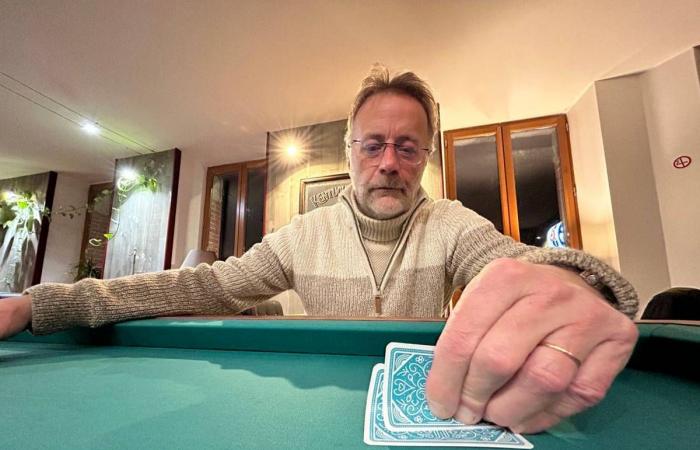Christophe Caron, after founding the Avallon Poker tour in 2006, wishes to create a charitable poker club in Avallon. Its objective: to financially support medical research.
Light years away from the “bling bling” image of poker, the project that Christophe Caron is currently developing in Avallon can be summed up in one word: charitable. “Poker has a rather sulphurous image, but I think it can be useful. A charitable poker club would be a first in France,” dreams out loud the Avallon merchant, founder in 2006 of the Avallon Poker Tour, which has since disappeared.
“I meet people every day who talk to me about recreating a poker club in Avallon. I'm up for it, but as long as it serves a purpose, there's no question of having another club,” he insists.
No financial gain for players
Marked by the illness of several loved ones, and more recently by the fight of little Léna, suffering from a rare cancer, Christophe Caron saw, for poker, a way to make himself useful.
“My idea would be to organize a charity tournament every month. All players' stakes would be donated to a Burgundian foundation or association. It wouldn't necessarily be huge, but any contribution to medical research is useful. »
Christopher Caron (empty)
Instead of financial gains for the best players, they would have the possibility of leaving with an invitation to an official circuit tournament.
“Such a project requires framing things well to remain within the regulatory framework of the associations,” he recognizes. A partnership with one of the major poker players in France, such as Winamax, PMU, Poker Stars or Parions Sport, also seems “essential” to the project leader. “I have started the process with them, but it takes time,” argues Christophe Caron.
Enjoyment of the game and minimum bets
Convinced of the merits of his business, the enthusiast would also like to contribute to “improving the image” of poker. “This environment is best known for generating huge sums of money among professionals, and the risks of addiction. However, it is a game that it is possible to play without spending crazy amounts of money, while keeping your head on your shoulders,” he defends. With a few simple rules to follow, he believes:
Receive our leisure newsletter by email and find ideas for outings and activities in your region.
The key is to set a budget and stick to it. Without ever imagining that we will earn a lot of money, live on it and stop working.
Advocating minimum stakes, “for the pleasure of the game”, Christophe Caron explains that he plays today mainly online. “You can bet 25 cents if you want, and that’s great. Here too, we must be careful not to close ourselves off, to maintain a social life.”
Far from the image of the high roller, the player highlights the “social” dimension of the card game: “Poker is a game of strategy, which combines math, probability, statistics, but also psychology, study of behavior. It’s a real school of life,” he enthuses.
premium Avallonnais Clément Aubry, from poker with friends to the national tournament
Solal Duchêne






